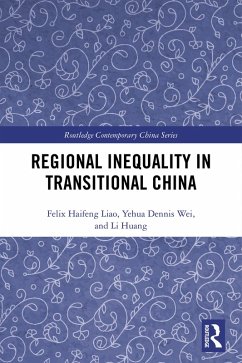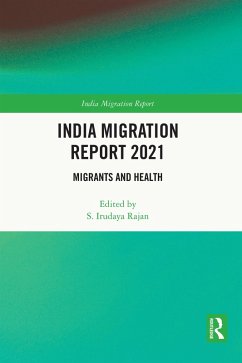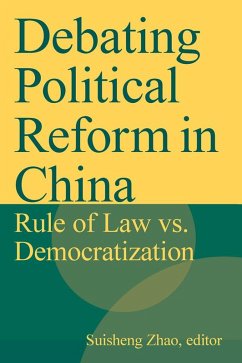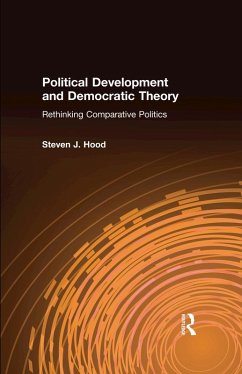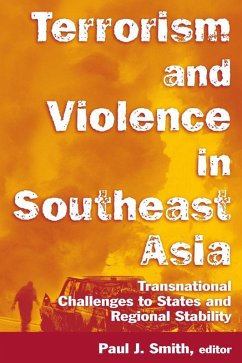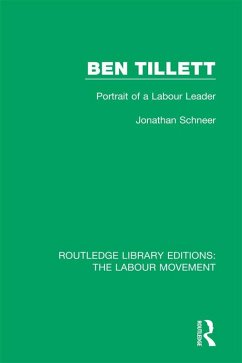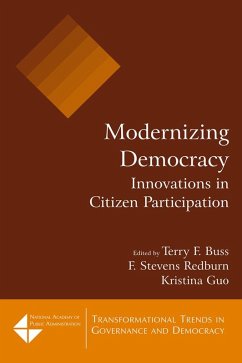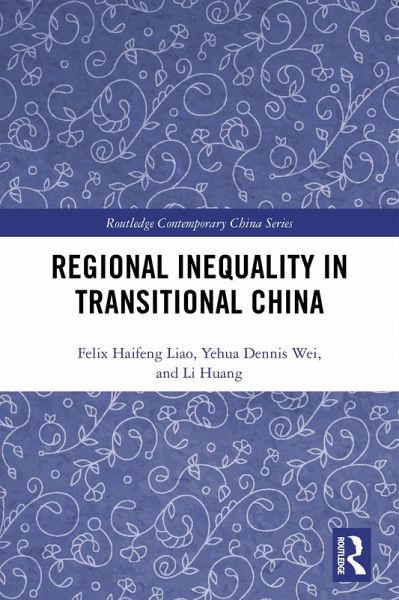
Regional Inequality in Transitional China (eBook, ePUB)
Versandkostenfrei!
Sofort per Download lieferbar
41,95 €
inkl. MwSt.
Weitere Ausgaben:

PAYBACK Punkte
21 °P sammeln!
This book investigates uneven regional development in China - with particular focus on the cases of Guangdong and Zheijiang provinces - which have been at the forefront of debate since Chinese economic reform.Rapid economic growth since the 'opening-up' of China has been accompanied by significant disparities in the regional distribution of income: this book represents one of the most recent studies to present a picture of this inequality. Built upon a multi-scale and multi-mechanism framework, it provides systematic examination of both the patterns and mechanisms of regional development and i...
This book investigates uneven regional development in China - with particular focus on the cases of Guangdong and Zheijiang provinces - which have been at the forefront of debate since Chinese economic reform.
Rapid economic growth since the 'opening-up' of China has been accompanied by significant disparities in the regional distribution of income: this book represents one of the most recent studies to present a picture of this inequality. Built upon a multi-scale and multi-mechanism framework, it provides systematic examination of both the patterns and mechanisms of regional development and inequality in provincial China, emphasizing the effects of economic transition. Approaching from a geographical perspective, its authors consider the interplay between the local, the state, and the global forces in shaping the landscape of regional inequality in China. Extensive empirical findings will prove useful to those researching other developing countries within the frontier of globalization and economic transition.
Regional Inequality in Transitional China will appeal to scholars and students of geography, economics and Chinese studies more broadly.
Rapid economic growth since the 'opening-up' of China has been accompanied by significant disparities in the regional distribution of income: this book represents one of the most recent studies to present a picture of this inequality. Built upon a multi-scale and multi-mechanism framework, it provides systematic examination of both the patterns and mechanisms of regional development and inequality in provincial China, emphasizing the effects of economic transition. Approaching from a geographical perspective, its authors consider the interplay between the local, the state, and the global forces in shaping the landscape of regional inequality in China. Extensive empirical findings will prove useful to those researching other developing countries within the frontier of globalization and economic transition.
Regional Inequality in Transitional China will appeal to scholars and students of geography, economics and Chinese studies more broadly.
Dieser Download kann aus rechtlichen Gründen nur mit Rechnungsadresse in A, B, BG, CY, CZ, D, DK, EW, E, FIN, F, GR, HR, H, IRL, I, LT, L, LR, M, NL, PL, P, R, S, SLO, SK ausgeliefert werden.




